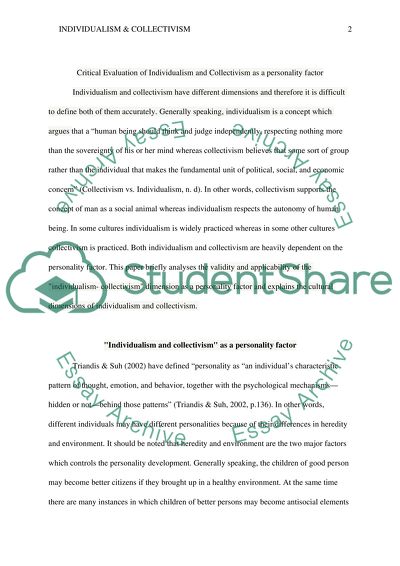Cite this document
(“Critical Evaluation of Individualism and Collectivism as a Personality Research Paper”, n.d.)
Retrieved from https://studentshare.org/psychology/1436387-critical-evaluation-of-individualism-collectivism
Retrieved from https://studentshare.org/psychology/1436387-critical-evaluation-of-individualism-collectivism
(Critical Evaluation of Individualism and Collectivism As a Personality Research Paper)
https://studentshare.org/psychology/1436387-critical-evaluation-of-individualism-collectivism.
https://studentshare.org/psychology/1436387-critical-evaluation-of-individualism-collectivism.
“Critical Evaluation of Individualism and Collectivism As a Personality Research Paper”, n.d. https://studentshare.org/psychology/1436387-critical-evaluation-of-individualism-collectivism.


